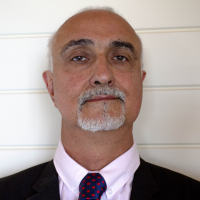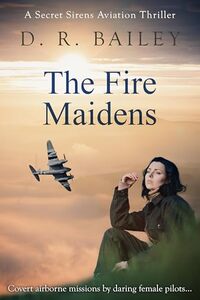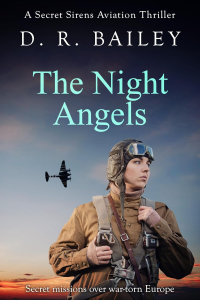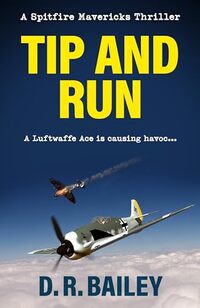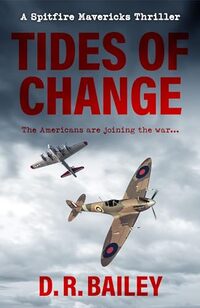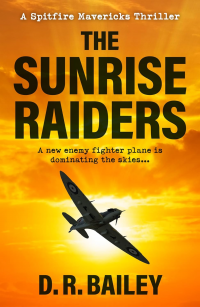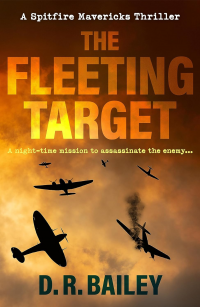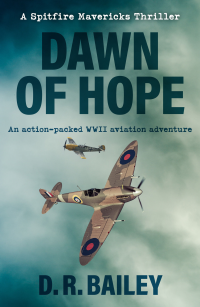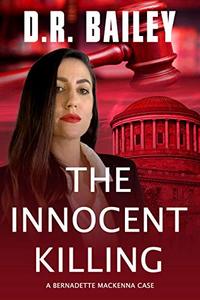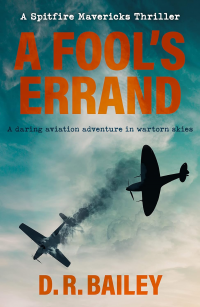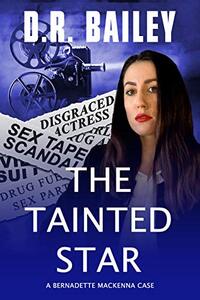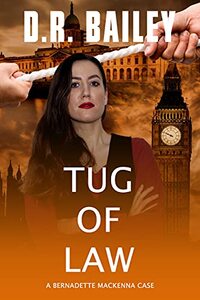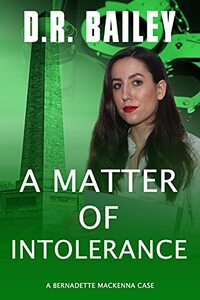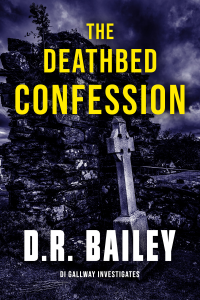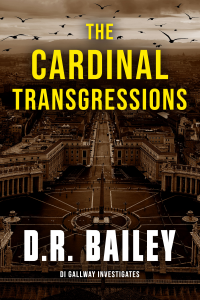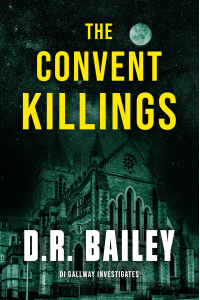Genre:
Crime Fiction- Country: New Zealand
- Books: 19
- Profession: Author
- Born: 23 March
- Member Since: Feb 2020
- Profile Views: 21,395
- Followers: 216
- VISIT AUTHOR: Website, Join Author's Newsletter, Facebook, Twitter, Instagram, Goodreads, Amazon,
D.R. Bailey was raised in a family of bibliophiles. From an early age, he developed eclectic tastes in fiction including Sci-Fi, Romance, Crime, and the Classics. Some of his favourite authors are still Gerald Durrell, Jane Austen, Peter James, Ellis Peters, and Isaac Asimov. He began his writing journey at the age of eleven with a fictional story about his toy teddy bear clan. To date, he has published four major fictional series. Apart from writing, Bailey has engaged in several different careers and says that these life experiences have all contributed greatly to his penchant for sto... rytelling.
Bailey’s most successful series is his WW2 Aviation Thriller, The Spitfire Mavericks, published by Sapere Books. It features spies, thrilling action-packed aerial combat, romance, and more. The series features a maverick crew of pilots thrown out from every squadron. The hero of the hour, Flying Officer Angus Mackennelly, endeavours to save the day in a series of thrilling adventures. The series has been a best seller on multiple Amazon lists in several countries and still rides high in the charts.
Following the success of the Mavericks series, Bailey has now written another WW2 Aviation Thriller series also published by Sapere Books, The Secret Sirens. The series poses the fictional question of what if women flew into combat with the RAF in WW2. The series features exciting secret missions by the Sirens squadron, spies, intrigue and more. Strong female leads combine with some great storylines to bring the reader an adventure to keep the pages turning.
Bailey has also penned and independently published five full-length crime novels in the DI Gallway series which is a genre he is particularly fond of. The stories contain a heady mix of crime, suspense, humour, steamy romance and much more. Bailey has also tackled some controversial and topical subjects surrounding the Catholic Church. The stories are set in Ireland, and Bailey confesses to having a great affection for the Irish.
Bailey has also independently published The Innocent Killing, and four other books in a Legal Drama series featuring a fictional barrister in Dublin called Bernadette Mackenna. This new series is a steamy spicy mix of legal drama with a strong element of same-sex romance.
The Spitfire Mavericks, The Secret Sirens, DI Gallway Investigates, and Bernadette Mackenna Investigates will hopefully continue for many more books to come. Bailey pledges to continue writing for as long as he can. Bailey is dedicated to excellence and writes with passion but at the same time tries to make his words accessible to those of all persuasions, sometimes shocking perhaps, but never dull.
read more
D R Bailey's Books
Stay in the loop on books by D R Bailey. See upcoming and best-selling books by the author here. You'll also find the deals on books by D R Bailey.
** Please note that the information or price displayed here may not be the updated. Make sure to double-check the latest book price before buying books.
** Also, there might be other books by D R Bailey not listed on AllAuthor.
| Book |
|---|
Sisters For Victory: Female agents take to the air... (Secret Sirens Aviation Thrillers Book 1)by D. R. BaileyPublish: Dec 20, 2024Series: Secret SirensThriller Action & Adventure Women's Fiction |
The Fire Maidens: Covert airborne missions by daring female pilots... (Secret Sirens Aviation Thrillers Book 3)by D. R. BaileyPublish: Jun 06, 2025 Series: Secret SirensThriller Action & Adventure Women's Fiction |
The Night Angels: Secrets missions over war-torn Europe (Secret Sirens Aviation Thrillers Book 2)by D. R. BaileyPublish: Mar 14, 2025Series: Secret SirensThriller Action & Adventure Women's Fiction |
Tip and Run: A Luftwaffe Ace is causing havoc... (Spitfire Mavericks Thrillers Book 6)by D. R. BaileyPublish: Sep 27, 2024Series: The Spitfire MavericksThriller Action & Adventure |
Tides of Change: The Americans are joining the war... (Spitfire Mavericks Thrillers Book 5)by D. R. BaileyPublish: May 24, 2024Series: The Spitfire MavericksThriller Action & Adventure Historical Fiction |
#1 Best Seller  The Sunrise Raiders: A new enemy fighter plane is dominating the skies... (Spitfire Mavericks Thrillers Book 4)by D. R. BaileyPublish: Feb 16, 2024Series: The Spitfire MavericksThriller Action & Adventure Historical Fiction The Sunrise Raiders: A new enemy fighter plane is dominating the skies... (Spitfire Mavericks Thrillers Book 4)by D. R. BaileyPublish: Feb 16, 2024Series: The Spitfire MavericksThriller Action & Adventure Historical Fiction |
The Fleeting Target: A night-time mission to assassinate the enemy... (Spitfire Mavericks Thrillers Book 3)by D. R. BaileyPublish: Oct 27, 2023Series: The Spitfire MavericksThriller Action & Adventure Historical Fiction |
Dawn of Hope: An action-packed WWII aviation adventure (Spitfire Mavericks Thrillers Book 1)by D. R. BaileyPublish: May 12, 2023Series: The Spitfire MavericksThriller Action & Adventure Historical Fiction |
The Innocent Killing (Bernadette Mackenna Cases Book 1)by D. R. BaileyPublish: Jul 23, 2020Series: Bernadette Mackenna CasesCrime Fiction Thriller Contemporary Romance Romance LGBT |
A Fool's Errand: A daring aviation adventure in wartorn skies (Spitfire Mavericks Thrillers Book 2)by D. R. BaileyPublish: Aug 04, 2023Series: The Spitfire MavericksThriller Action & Adventure Historical Fiction |
The Tainted Star (Bernadette Mackenna Cases Book 2)by D. R. BaileyPublish: Oct 15, 2020Series: Bernadette Mackenna CasesCrime Fiction Thriller Contemporary Romance Romance LGBT |
One Deadly Shot (Bernadette Mackenna Cases Book 3)by D. R. BaileyPublish: Dec 29, 2020Series: Bernadette Mackenna CasesThriller Suspense Mystery Romantic Suspense LGBT |
Tug Of War (Bernadette Mackenna Cases Book 4)by D. R. BaileyPublish: May 21, 2021Series: Bernadette Mackenna CasesCrime Fiction Thriller Contemporary Romance Romance LGBT |
A Matter of Intolerance (Bernadette Mackenna Cases Book 5)by D. R. BaileyPublish: Aug 20, 2021Series: Bernadette Mackenna CasesThriller Suspense Mystery Romantic Suspense LGBT |
The Confessional Killings (DI Gallway Investigates Book 1)by D. R. BaileyPublish: Apr 23, 2019Series: DI Gallway InvestigatesCrime Fiction Thriller Mystery |
The Deathbed Confession (DI Gallway Investigates Book 2)by D. R. BaileyPublish: Jun 27, 2019Series: DI Gallway InvestigatesCrime Fiction Thriller Mystery |
The Mass Murders (DI Gallway Investigates Book 3)by D. R. BaileyPublish: Nov 27, 2019Series: DI Gallway InvestigatesCrime Fiction Thriller Mystery |
The Cardinal Transgressions (DI Gallway Investigates Book 4)by D. R. BaileyPublish: Apr 10, 2020Series: DI Gallway InvestigatesCrime Fiction Thriller Mystery |
The Convent Killings (DI Gallway Investigates Book 5)by D. R. BaileyPublish: Mar 25, 2021Series: DI Gallway InvestigatesCrime Fiction Thriller Mystery |
D R Bailey's Series in Order
It's exciting to find a book series to follow! Discover the whole new world of book series created by D R Bailey.
** Also, there might be other book series by D R Bailey not listed on AllAuthor.
D R Bailey Interview On 17, Dec 2020
 "Crime Author, D.R. Bailey was raised in a family of bibliophiles. At the age of eleven, he wrote his first fictional story about his toy teddy bear clan. He absorbed many styles and ways of writing from all the reading he did in his youth and formative years. Bailey writes great, straight-up crime fiction novels."
"Crime Author, D.R. Bailey was raised in a family of bibliophiles. At the age of eleven, he wrote his first fictional story about his toy teddy bear clan. He absorbed many styles and ways of writing from all the reading he did in his youth and formative years. Bailey writes great, straight-up crime fiction novels."
I don’t think I could really pick one. I had many happy times with my parents in Africa, but I suppose the Christmases were best. We had a cottage by the lake and used to go for maybe a couple of weeks. That was fun, just swimming and stuff every day. I realise I led a privileged life and I’m grateful for that. I think one of my enduring memories is reading. I would take a hunk of salami from the fridge, a tomato, and retire to my room to read probably Enid Blyton or later Gerald Durrell, those were happy times.
What are some valuable lessons you have learned while being raised in a family of bibliophiles?I think being widely read is good for literacy, for the understanding of culture, for history, and many other things. It breeds a wide imagination and sets you up for a life of reading. That can only be a good thing. I learned the importance of books which meant I also read to all my children. Only one of them has really continued as a reader and also a very successful author in her own right. However, they all had a grounding and that’s important. As a future writer, I suppose I absorbed many styles and ways of writing from all the reading I did in my youth and formative years.
What developed eclectic tastes in fiction including; SciFi, Romance, Crime, and the Classics?My parents and siblings really. They were massive fans of Georgette Heyer in particular. I well remember the day my father gave me “My Family and Other Animals” to read. It’s by Gerald Durrell and it is hilarious. I could relate to it and of course, I avidly read every book he had ever written. By then, a bit older, I was ready for Georgette Heyer. I loved them, so funny and clever. One of my sister’s had a huge library of Science Fiction, she gave me “I Robot” to read. I raided her entire library until I had pretty much read them all. Once I was even older, and I’d run out of Heyer’s and others then I moved on to Jane Austen, it’s a natural progression, and other classics which I had missed out on. I read widely other authors, crime and so on. It was the staple of my London commute for years. I once had a vast collection of paperbacks, but alas no more. They take up too much space and I was never going to read many of them again. I just kept the ones I liked best. Now of course I have my own collection of my books, my daughter’s and my sister’s.
Which is your favourite book written by Jane Austen?You might be surprised to learn that it’s Northanger Abbey. For some reason, this struck me as incredibly romantic, and I’m an incurable romantic at heart. There is something about it that just resonated for me in lots of ways. I love her other books too.
What inspired you to write your first fictional story about your toy teddy bear clan at the age of eleven?I don’t really know. I was possibly encouraged by my sister who was, at the time, a very fast typist. I was able to dictate the story and she typed it up for me. It was perhaps also the fact that my father and sisters would make up endless stories for me which I loved, and maybe this is what sparked my imagination to write myself.
How much do you research while writing non-fiction article to be published in magazines?It depends upon how well I know the topic. However, generally, a lot so that I’m up to date on the latest information on it and find things to include or reference. I don’t like to write something that might not be factual or true, so I do ensure I’ve got it all straight. After all, nobody wants to be challenged on their article by an ‘expert’.
Having penned four full-length crime novels, what are the elements of writing a good fiction novel?For me, I’d say good characters. I’m very character-focused in my writing and I like characters you can relate to, love or hate, root for and identify with. So that would be the first thing. I’m fond of dialogue so prefer books with a good balance of that in it and good believable dialogue too. I love to write real interplays which you could believe would happen in life. The plot is obviously important and where it takes you, whether it’s obvious or not doesn’t matter if the story catches you and carries you with it. I like to start my novels with a bang or at least something to hook the reader in right away and then try to ensure the story keeps them there for the whole book. At the same time, I would say there are no rules. A good book, no matter how it’s written will keep your attention and, in the end, that’s the most important thing.
What inspired you to start writing The Confessional Killings?A scene came to my head. The first scene, and I just wrote it. The book stemmed from that and all the characters in it. At the time I was in the middle of my doctorate and so the fiction was an antidote to the academic writing. It was something which I had total control of, so I think it was therapeutic and cathartic. During that time my wife was also diagnosed with breast cancer, and times were stressful. I took refuge in fiction writing. She has been through some tough surgeries and times but is a survivor to this day and a great supporter of my work.
Which book took the longest to write in the Bernadette Mackenna Cases series?The third one which is about to be published this month, December 2020. It did not flow as easily in writing as the others, but I got there in the end. The first two were done very quickly by comparison. That’s just how it goes with writing, sometimes it’s all systems go and other times all systems stop.
Who inspired the character of the famous actress in "The Tainted Star"?I can’t really say. It’s probably a mixture of actresses I’ve seen or admired. The fictional actress D’Arcy Brown is quite self-absorbed and there are a few actresses one could say that about. More than a specific person I wanted to depict the world of celebrity and how different it is from the ‘real’ world that most of us know. Almost surreal in a way, and how that affected the other main characters in the book. I think some of the mores of normal society went by the board in writing this which was a reflection of that world where different rules apply. Hopefully, people find it entertaining.
Do you read your book reviews? How do you deal with bad or good ones?I read all of them and, of course, wish I had many more. I rejoice in the good ones and let the bad ones, or not so good ones go. After all, you cannot please everyone, and everyone will not like your work. I feel grateful to have some really diehard fans nevertheless and it’s their opinions which I love to hear the most, whether good or bad. In the end, I write the books I would like to read. I actually quite like reading my own books too, I think you should enjoy your own work, that’s part of the fulfilment.
If you could tell your younger writing self anything, what would it be?Persevere, that’s what a writer needs. Keep going and keep writing and keep publishing. When I grew up it was harder, there was no Amazon, no Indie, all of that, we were so publisher dependent. The whole thing took forever from submission onwards. Writers today who did not experience that era perhaps can’t relate to the relief to have the shackles lifted off. We can publish and be damned. So, there are no barriers to getting it done.
What is your writing dream? How close do you think you are to achieving it?I dream of being successful I guess, like most. I would love to have DI Gallway or Bernadette Mackenna on screen as a series. I’m not close to that at all, as far as I know. I want to just write as many books as I can. So far, I’ve done seven, so I’m doing OK.
How many plot ideas for your next book have you thought of during quarantine?I’ve been writing during quarantine, three Mackenna books done, so any plot ideas sit in notes at the moment.
How long have you been associated with AllAuthor? How has your experience been?Most probably about a year. It’s been good, particularly now I have featured books. I am probably not using it to the full, as yet, but hopefully there is a lot of potential in being part of All Author.
Ask D R Bailey a Question
Have brimming questions to ask author D R Bailey? Ask whatever you like, but keep it appropriate.
** Please note that unanswered questions will not appear on the page. Refrain from posting promotional messages.
